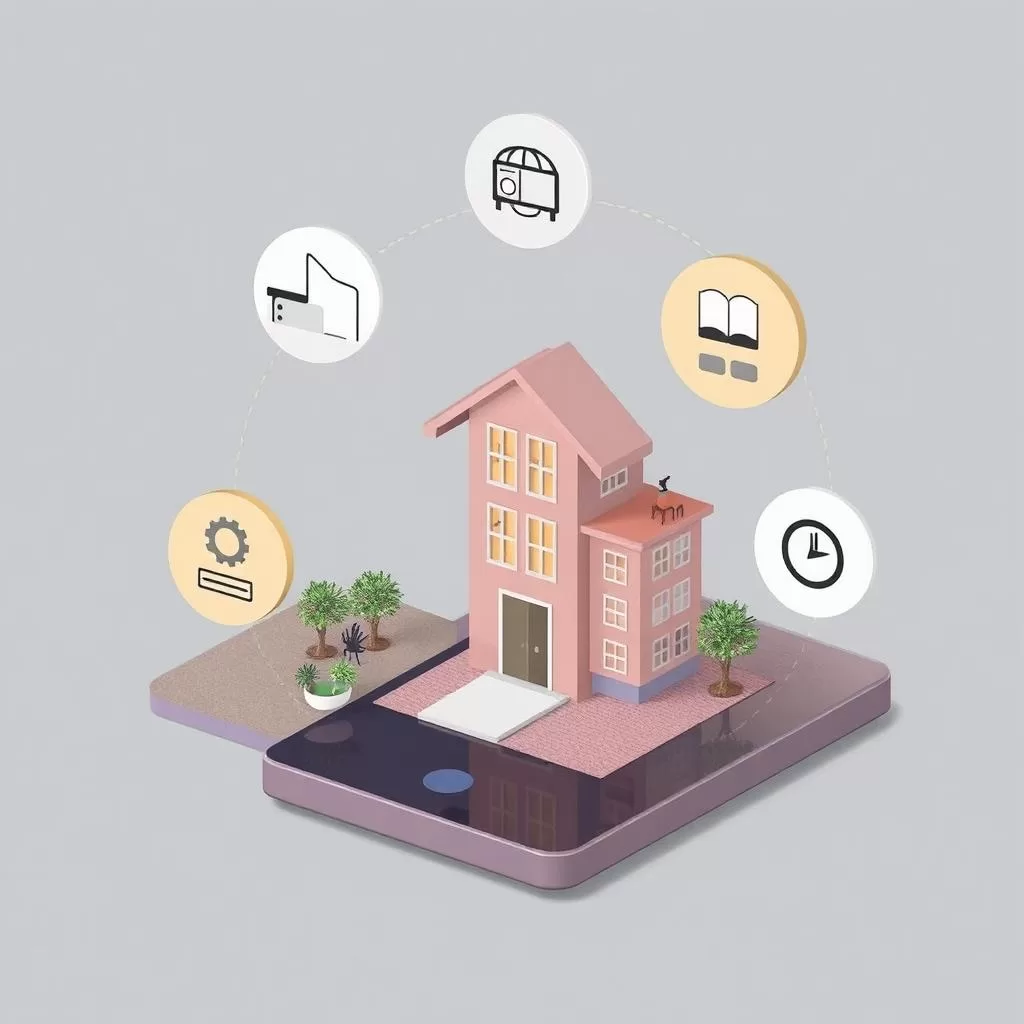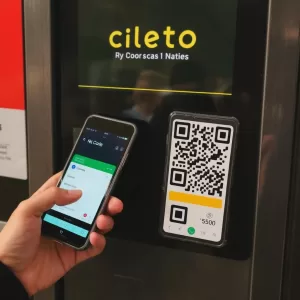Blockchain is Transforming Industries Beyond Cryptocurrency. Learn how
Blockchain is no longer just synonymous with Bitcoin or cryptocurrency; it has evolved into a groundbreaking technology reshaping entire industries. While its early fame was tied to digital currencies, blockchain’s underlying capabilities—decentralization, immutability, and enhanced transparency—are now being leveraged far beyond the financial world. We will therefore delve into how blockchain is transforming industries.
In 2025, we’re witnessing a significant shift. Businesses across diverse sectors—including finance, healthcare, supply chain logistics, and even voting systems—are integrating blockchain to enhance security, streamline operations, and build trust with stakeholders. What was once a fringe innovation is now a foundational tool for digital transformation.
So, how does blockchain actually function under the hood? And more importantly, which industries are tapping into its full potential, and how are they reaping the rewards?
What You’ll Learn in This Article:
✅ How blockchain technology works beyond crypto
✅ The industries being revolutionized by blockchain
✅ Future trends and how businesses can adopt blockchain
What is Blockchain and How Does It Work?
To understand how blockchain is transforming industries, we first need to explore how the technology works. Blockchain is a decentralized digital ledger that records transactions securely, transparently, and across a distributed network of computers. Unlike traditional databases, blockchain does not rely on a central authority to manage or store data. Instead, data is stored across multiple nodes, with each node holding an identical copy of the ledger. As a result, every transaction must be validated through a consensus process before being added to the blockchain.
This structure offers key advantages that are driving widespread adoption across various industries:
- First, blockchain eliminates intermediaries such as banks and brokers, allowing direct peer-to-peer transactions.
- Second, it increases security by linking blocks cryptographically, making the data nearly impossible to alter.
- Third, it enhances transparency by keeping permanent, time-stamped records on public or private ledgers.
Because of these benefits, blockchain is more than a cryptocurrency platform—it’s a trusted system for managing digital information.
Today, organizations use it to increase efficiency, improve trust, and cut operational costs.
This is exactly why blockchain is transforming industries like healthcare, finance, logistics, and even government services.
💡 For example, if a transaction is added to the blockchain, it cannot be changed or deleted, ensuring trust.
🔗 Related: How Blockchain Technology is impacting Africa
How Blockchain is Transforming Industries
How blockchain is transforming Financial Services & Banking Industries
Banks and fintech companies are increasingly using blockchain to speed up transactions and reduce fraud. For example, cross-border payments become faster and cheaper, eliminating the delays and high fees of traditional methods. Additionally, smart contracts automate transactions without the need for banks or lawyers, simplifying processes and cutting costs. Furthermore, blockchain’s encryption ensures that all transactions are tamper-proof, significantly enhancing fraud prevention and security.
💡 For example, Ripple (XRP) enables real-time cross-border payments for banks like Santander and SBI.
How Blockchain is transforming Supply Chain & Logistics Industries
Blockchain significantly improves tracking and transparency in global supply chains by enabling verification of product authenticity, such as ensuring organic food or luxury goods are genuine. In addition, it allows real-time tracking of shipments, so businesses and consumers know exactly where products are at all times. Moreover, blockchain helps reduce fraud by preventing counterfeiting in sensitive industries like pharmaceuticals and fashion, thereby protecting both brands and consumers.
💡 For example, Walmart uses blockchain to track food safety and reduce contamination risks.
How Blockchain is transforming Healthcare & Medical Records Industries
Blockchain enhances data security and patient privacy by ensuring that no single entity owns medical records, making them tamper-proof and highly secure. Furthermore, smart contracts automate insurance claim approvals, speeding up the process and reducing administrative burdens. Additionally, blockchain helps verify drug authenticity, preventing counterfeit medicines from entering the market and protecting patient safety.
💡 For example, IBM’s blockchain solutions are helping hospitals secure patient data.
🔗 Related: AI & Blockchain in Fintech
Voting & Digital Identity Industries: How Blockchain is transforming them
Blockchain is significantly improving elections and digital identity verification by offering tamper-proof voting systems that prevent election fraud and manipulation. Additionally, digital IDs stored securely on the blockchain help reduce identity theft by safeguarding personal documents. Moreover, the use of public blockchain records increases government transparency, ensuring greater accountability to citizens and fostering trust in democratic processes.
💡 For example, Estonia has implemented blockchain-based e-voting for government elections.
Real Estate & Smart Contracts industries: How Blockchain is transforming it
Blockchain simplifies property transactions by removing intermediaries, which streamlines the entire process. For instance, smart contracts automate buying, selling, and rental agreements, reducing the need for manual intervention. Moreover, blockchain enhances security by ensuring property ownership is verified and protected against fraud. As a result, transactions become faster because there is no longer a reliance on slow, paper-based verification methods.
💡 For example, Propy uses blockchain to enable paperless real estate deals.
The Future of Blockchain in Industries: What to Expect to transform in 2025
Central Bank Digital Currencies (CBDCs)
Governments around the world are increasingly launching digital versions of their currencies using blockchain technology. For example, China has already introduced the Digital Yuan, making it the first government-backed digital currency in widespread use. Meanwhile, the European Union is developing the Digital Euro as a blockchain-powered alternative to traditional euros. At the same time, the United States is actively exploring the possibility of a Digital Dollar, with the Federal Reserve researching a central bank digital currency (CBDC) to modernize the monetary system.
💡 For example, over 100 countries are exploring CBDCs for faster and more transparent payments.
Blockchain-Powered AI & IoT
Integrating blockchain with AI and IoT promises to make transactions both autonomous and highly secure. For instance, AI-driven smart contracts can automate contract execution without human intervention, increasing efficiency and accuracy. Additionally, IoT devices leverage blockchain to verify identity and control access, significantly enhancing security across connected systems. Furthermore, decentralized AI models store algorithms securely on the blockchain, ensuring data integrity and protecting intellectual property from tampering.
💡 For example, Bosch and IBM are working on blockchain + AI for self-driving cars.
Web3 & Decentralized Apps (dApps)
Web3, the next generation of the internet, leverages blockchain technology to enable true decentralization. Unlike traditional web platforms, Web3 removes middlemen, allowing users to control their own data and transactions directly. This shift has given rise to DeFi, or decentralized finance, where people can lend, borrow, and trade assets without relying on banks. Moreover, Web3 supports NFTs and digital ownership, providing users with verifiable and secure ownership of digital assets like art, music, and collectibles.
💡 For example, Ethereum and Solana power thousands of Web3 applications.
🔗 Related: Future of Web Development: Trends, Tools and Technologies
Challenges of Blockchain Adoption
While blockchain holds immense potential, several challenges must be addressed for widespread adoption. Understanding these hurdles helps businesses and individuals navigate the technology more effectively.
Data privacy concerns
Although blockchain promotes transparency, it can also raise privacy issues. Public blockchains, by design, make transaction data visible to all participants. Therefore, balancing transparency with data privacy—especially in sensitive sectors like healthcare—is a challenging task that requires sophisticated solutions such as zero-knowledge proofs or private blockchains.
Scalability issues
One of the main challenges is scalability. Some blockchain networks, especially those using Proof-of-Work (PoW) consensus mechanisms, process transactions slowly compared to traditional systems like Visa or Mastercard. Consequently, this limits their ability to handle large volumes of transactions quickly. Moreover, as more users join the network, the problem can worsen, leading to congestion and higher fees. Therefore, improving scalability through solutions like sharding, layer-2 protocols, or alternative consensus algorithms is critical for mass adoption.
Regulatory uncertainty
Another significant barrier is the lack of clear regulations. Around the world, governments are still figuring out how to regulate blockchain technology, cryptocurrencies, and related activities. As a result, businesses face legal ambiguity, which can create risks related to compliance, taxation, and data privacy. This uncertainty can slow down investment and innovation. However, ongoing regulatory dialogues aim to create frameworks that balance innovation with consumer protection, which will ultimately encourage more mainstream adoption.
High energy consumption
Many popular blockchains, such as Bitcoin, use energy-intensive Proof-of-Work mechanisms, which consume vast amounts of electricity. This has raised environmental concerns and criticism regarding blockchain’s sustainability. In response, the industry is exploring greener alternatives like Proof-of-Stake (PoS) and other consensus models that require less power. Transitioning to these solutions is essential to reduce blockchain’s carbon footprint and make it more acceptable to governments and environmentally-conscious consumers.
Integration with existing systems
Additionally, integrating blockchain with existing IT infrastructure is often complex and costly. Legacy systems may not be compatible with decentralized architectures, which can slow down adoption. Businesses must invest in technical expertise and adapt their workflows, often requiring significant time and resources.
User education and trust
Furthermore, many potential users lack understanding of blockchain technology, leading to skepticism and distrust. Hence, educating stakeholders on blockchain’s benefits and limitations is vital. Without proper knowledge, adoption rates may remain low, especially among non-technical users.
💡 For example, Ethereum moved to Proof-of-Stake (PoS) to reduce energy consumption by 99%.
How Businesses Can Start Using Blockchain
🔹 Businesses Should:
Identify high-impact use cases
Start by analyzing where blockchain can solve real problems. Is it payments, identity verification, contract automation, or supply chain tracking?
Choose the right blockchain platform
Not all blockchains are the same. Ethereum supports smart contracts. Hyperledger is ideal for private, permissioned business networks.
Invest in smart contracts
These self-executing contracts run on blockchain and automate agreements. They reduce manual work, errors, and operational costs.
Integrate with existing systems
Blockchain shouldn’t replace everything. It works best when layered onto trusted business tools like ERPs or CRMs.
Ensure legal and regulatory compliance
Work with legal teams early. Blockchain data is permanent, so compliance and data privacy need to be considered upfront.
Educate internal teams
Success requires more than just tech. Train employees to understand blockchain’s value, limitations, and impact on daily operations.
🔹 Consumers Should:
Understand blockchain wallets
Your crypto wallet is like your digital bank. Use hardware wallets for maximum security when storing valuable assets.
Explore DeFi and Web3 apps
Try decentralized finance platforms or Web3 tools for lending, earning interest, or even playing blockchain-based games.
Be cautious of scams
If it sounds too good to be true, it probably is. Stick to well-known, audited platforms and exchanges.
Stay informed
Blockchain changes fast. Follow trusted blogs, forums, and communities to keep up with trends and safety practices.
Own your data
With Web3, users control their identity and digital assets. Learn how to protect your information in this new ecosystem.
Conclusion: How Blockchain is transforming Industtries
By 2025, blockchain is no longer emerging—it’s essential. Across industries, it is transforming how businesses operate and share data. In finance, blockchain enables faster transactions, lower fees, and tamper-proof records—changing how money moves globally. Moreover in healthcare, it secures patient data, streamlines records, and ensures accuracy across hospitals, insurers, and providers. In supply chains, blockchain offers end-to-end visibility. Products can be traced in real time, improving trust and reducing fraud. Even in government and voting systems, blockchain ensures transparency, prevents manipulation, and increases public trust in democratic processes.
These real-world applications show that blockchain is transforming industries by delivering greater security, efficiency, and accountability.
As adoption continues to rise, businesses that embrace blockchain early will lead in innovation and build stronger digital foundations.
Frequently Asked Questions (FAQ)
What is blockchain in simple terms?
Blockchain is a digital ledger that stores data across a decentralized network. Each record (or “block”) is linked and secured using cryptography. This structure makes it nearly impossible to alter past data, ensuring transparency and security.
How is blockchain different from traditional databases?
Unlike traditional databases that are centralized and controlled by one entity, blockchain is decentralized. Data is stored across multiple nodes, and changes must be validated by the network. This prevents tampering and reduces the risk of a single point of failure.
Why is blockchain considered secure?
Blockchain uses advanced encryption and a consensus mechanism to verify and lock transactions. Once added, data on a block cannot be changed without altering every subsequent block, which is nearly impossible. This makes the system tamper-resistant.
What industries are using blockchain technology?
Blockchain is transforming industries such as finance, healthcare, logistics, supply chain management, real estate, energy, and even government services. These sectors benefit from enhanced transparency, automation, and data integrity.
How is blockchain transforming the finance industry?
In finance, blockchain is used for real-time settlements, fraud reduction, identity verification, and cross-border payments. It replaces costly intermediaries and enables secure peer-to-peer transactions, making financial systems more efficient.
How is blockchain transforming supply chains?
Blockchain tracks goods at every stage of the supply chain. It ensures transparency, reduces counterfeit products, and improves traceability. Companies like Walmart and IBM use blockchain to monitor product origins and logistics.
Can blockchain be used in healthcare?
Yes. Healthcare providers use blockchain to secure patient records, ensure data interoperability, and manage medical supply chains. It helps protect sensitive data while improving access and trust between providers and patients.
Is blockchain the same as cryptocurrency?
Not exactly. Blockchain is the underlying technology that powers cryptocurrencies like Bitcoin. However, its use cases go far beyond digital money and are now reshaping many other sectors.
What are smart contracts?
Smart contracts are self-executing agreements written in code. They automatically perform actions when conditions are met, such as releasing payment when a shipment is received. They help reduce errors, costs, and fraud.
What are public vs. private blockchains?
Public blockchains, like Bitcoin and Ethereum, are open to everyone. Private blockchains are restricted to certain users—typically within a business or consortium. Each serves different needs depending on control, security, and transparency requirements.
How does blockchain increase transparency?
All blockchain transactions are time-stamped, verifiable, and stored on a shared ledger. In public blockchains, anyone can view the history. This ensures accountability and builds trust in environments where data integrity matters.
What are the limitations of blockchain?
Despite its strengths, blockchain can face issues like scalability, energy consumption (especially with proof-of-work), regulatory uncertainty, and integration challenges with existing systems. However, newer models like proof-of-stake aim to solve these problems.
How can a small business adopt blockchain?
Small businesses can start by exploring simple blockchain tools for invoicing, payments, or tracking shipments. Platforms like Ethereum or Hyperledger offer scalable, open-source solutions. Partnering with blockchain consultants can also simplify implementation.
How is blockchain relevant to Web3?
Web3 is the next evolution of the internet, centered around decentralization. Blockchain is the core technology behind it, enabling users to own digital assets, identities, and participate in decentralized apps (dApps) without intermediaries.
Why do people say blockchain is transforming industries?
Because it enables trust in environments where trust was previously difficult or expensive to establish. From automating legal contracts to tracking product origins, blockchain provides scalable solutions that are changing how industries operate.
What’s the future of blockchain?
The future of blockchain looks promising. As technology matures, expect deeper integration in government systems, smart cities, digital identity, and AI-driven automation. By 2030, blockchain could be as ubiquitous as the internet.
Key Takeaways of how Blockchain is transforming industries:
✅ Blockchain ensures security, transparency, and decentralization.
✅ Industries like banking, supply chains, and healthcare are adopting blockchain.
✅ Future trends include CBDCs, AI integration, and Web3 applications.
💬 How do you think blockchain will impact daily life? Share your thoughts in the comments!
Share this content:







1 comment